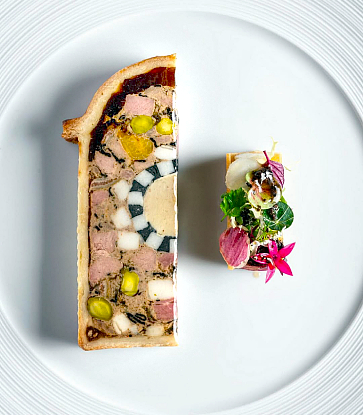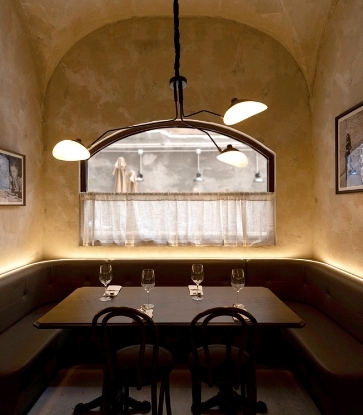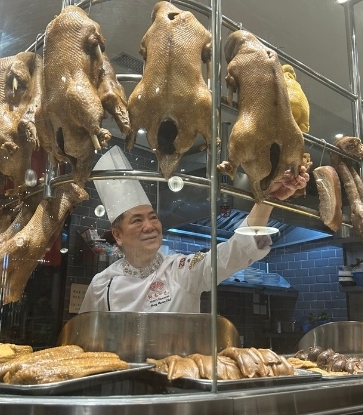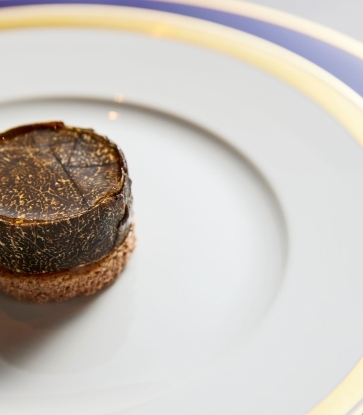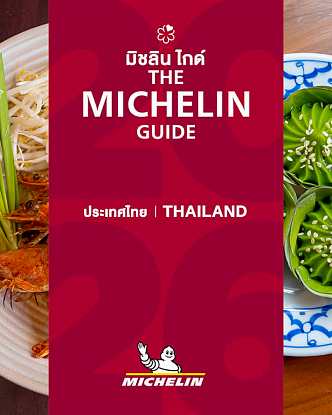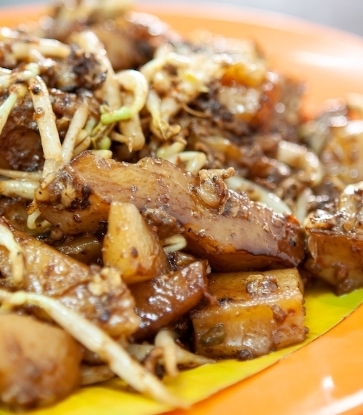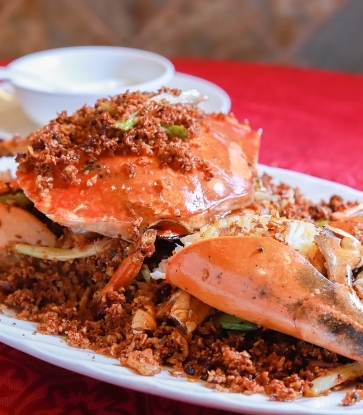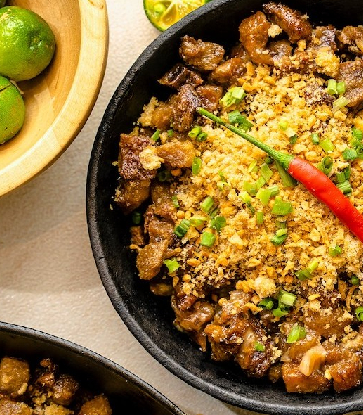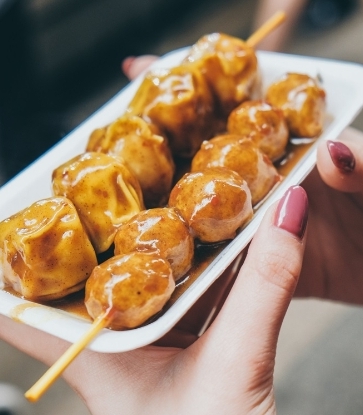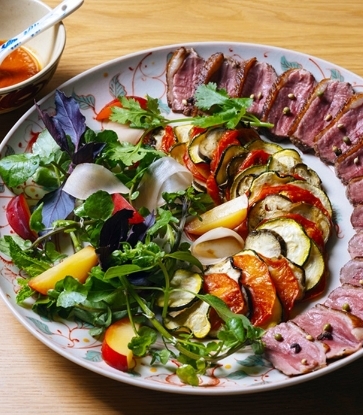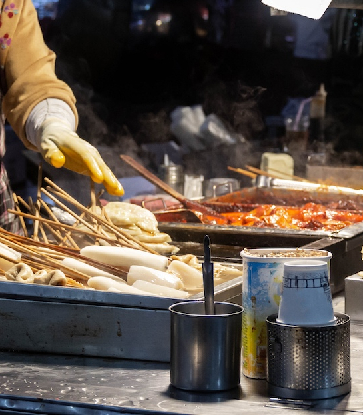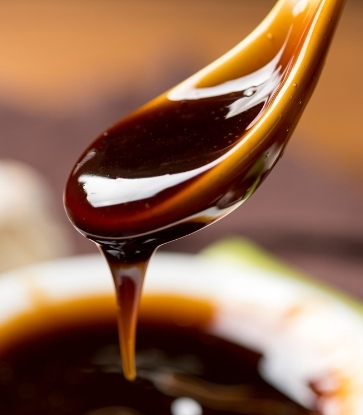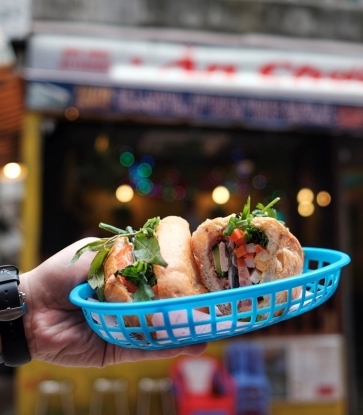With a name that translates to “Two Sisters” in Cantonese, many visitors come expecting to find the place run by two Sichuan beauties, but are always somewhat surprised to meet its hulking boss, Jim, taking orders instead. Jim jokes that male customers are always a little disappointed. Jim’s wife, Emma, it turns out, is one of the aforementioned sisters.
“I am a flight attendant and fly frequently to China, where I have sampled a lot of delicious cold noodles. By chance, I met an older Sichuan lady who introduced me to her delicious take on the dish and discovered her tasty cold noodles. So, I invited her to head the kitchen and partnered with a good friend to open Twins Liangpi Limited (Prince Edward), hoping to ignite a new liangpi (cold skin noodles) trend."
However, after opening the store, they encountered wave after wave of difficulties: first, her business partner left due to personal reasons, followed by the sudden resignation of her Sichuan chef. Emma had no choice but to press on with just her husband, who was a pastry chef.
RELATED: 6 New Establishments Awarded a Bib Gourmand in the MICHELIN Guide Hong Kong & Macau 2023

But because the Sichuan chef did not leave behind the recipe for the cold skin noodle sauce, the couple had to recreate its flavour from memory, researching online, and teaching themselves how to cook traditional Sichuan and Chongqing dishes. When neither of them could capture the original flavour, they changed track, and decided to create their own rendition.
Sauce Ratio is Key
Chinese restaurant chefs are known to be secretive about their sauce recipes, but the couple are surprisingly open. "It's actually very simple, just sesame paste, sugar, light soy sauce, sesame oil, ginger, garlic, and onions. The everyday ingredients you can buy in the market, just mixed together," they share. "The most important thing is the proportions! We tried many different combinations to get to this perfect ratio. All the ingredients have to be weighed down to the last gram.”
Perhaps, it’s because of Jim’s training as a pastry chef that he prizes such precision, understanding innately that consistency is the key to maintaining standards and retaining customers. "It doesn't necessarily have to be the best food that attracts people — keeping the quality consistent is the key to retaining customers," he says. For example, he shares how, even for factory-produced Shantou rice vinegar, each bottle varies slightly in tartness. They once tested the vinegar and found that the pH value of each bottle ranged from 2.5 to 4, varying enough to affect the quality of their food. The solution? Taste-testing each new bottle to ensure consistency in the final dish.

Every bowl of Sichuan cold skin noodles is actually a labour of love. The noodles have to be made fresh every day to avoid freezer burn. Dried liangpi is soaked for 24 hours, and then separated slice by slice to keep the pieces from tearing. More water is added for the noodles to absorb before they are cooked, and excess starch is rinsed away in running water to achieve the perfect bouncy texture. The liangpi is cooled, and then portioned so that each bowl has exactly 330g of noodles. Many establishments find the process cumbersome, opting instead to use alternatives like fenpi (green bean noodles), but Jim is insistent that only dried liangpi results in a smooth and chewy texture, with fragrant notes of mung bean and cassava.
Two kinds of homemade chilli oils make up the soul of Twins Liangpi Limited (Prince Edward). The first is a versatile Lao Shao Ping An Layu, which boasts a numbing fragrance and mild spice, made from Erjingtiao peppers from Sichuan, bell peppers, and Indian pepper; the second, Ji Layu, is devilishly spicy with the use of ghost pepper.
Before opening the store, the couple did their market research, sampling liangpi across Hong Kong, where they found that each bowl averaged around HKD$25. Pricing theirs at HKD$33 saw many customers who felt that they were expensive. The dish might be low-cost to produce, but the labour behind it and the meticulous attention to detail, from the ratio of sauce to noodles and the texture of the liangpi, justifies its price.
The couple are sticklers for detail and work hard each day to perfect their product, and their intentions are evident in every aspect of the business. "Diners actually have higher expectations for street snacks and small shops. Many customers feel that they can talk directly to the shop owners. So, if they have any complaints, we have to deal with them directly," says Jim, though he adds that he actually appreciates the feedback to improve their offerings.
“It doesn't necessarily have to be the best food that attracts people — maintaining quality is the key to retaining customers.”
First Dine-in Restaurant at Mong Kok
Not long after they opened the store, the Hong Kong protests began, followed soon after by the pandemic. Fortunately, they were able to turn the crisis into an opportunity. "At the beginning of the pandemic, people were afraid to go out on the street and were worried about catching the virus even when buying takeout. As a result, we had to sell toilet supplies and bleach for a month to survive. As takeouts became popular, the business stabilised. Later, people started reporting on the restaurant and word about us spread, which was really unexpected and very lucky for us," Jim says.
He still remembers jokingly saying to Emma one night: "It would be great if we got a MICHELIN Star one day!" And to his disbelief, one day, a customer came and told him that Twins Liangpi Limited (Prince Edward)
actually received a MICHELIN nod. He was overjoyed and became emotional when recollecting how far they had come. In the months following the Bib Gourmand announcement, there was no time to celebrate because business boomed. At the end of 2023, they opened their first dine-in restaurant in Mong Kok. "Many customers have been coming for so many years, and they wanted to sit down and eat slowly. I, too, was looking forward to seeing the smiles of my customers enjoying their food. I also hope to attract more tourists and become representative of Hong Kong’s dining culture,” Jim says.
Liangpi is a down-to-earth street food, but the couple wanted to create a stylish and clean restaurant concept. "When most people think of Sichuan restaurants, red lanterns or Chinese retro décor come to mind. We decided to go against tradition and designed a minimalist signboard with red letters on a white background. Although it is a bit retro, we’ve kept the other furnishings simple. Our style lies somewhere between retro and modern,” says Jim.
"I Work in a MICHELIN Restaurant!"
Serving liangpi for takeout and dine-in differs. The sauce and noodles get mixed together in a takeout order, but when dining in, the sauce tends to pool at the bottom of the bowl, making the eating experience inconsistent. So for dine-in orders, the liangpi is placed in the bowl first, and then the sauce is poured over, whereas for takeout, the sauce goes at the bottom of the bowl.
Some proactive employees have taken the initiative to improve the product and service. Once, after receiving complaints that a bowl of wontons was not hot enough, a staff member, inspired by wonton noodle shops, started warming the bowls before serving the wontons in them.
That employees would take such pride in their work shows the care Twins Liangpi Limited (Prince Edward) has taken in treating their employees like family over the past four years. Some former employees have even returned, becoming longtime staffers. "We are a family-style operation, and we get along with our employees like family. We don't blame each other. Even if we get a wrong order, I’d just say to them: it’s okay we’ll eat it!" A particularly enthusiastic employee, proud of Twins Liangpi Limited (Prince Edward)’s achievements, often told others: "I work in a MICHELIN restaurant!”
The small establishment and humble cooking belie the couple’s great ambitions. “We hope that through our efforts, more people will have a happy and affordable place to eat,” say Jim and Emma.
RELATED: More Bib Gourmand Stories



